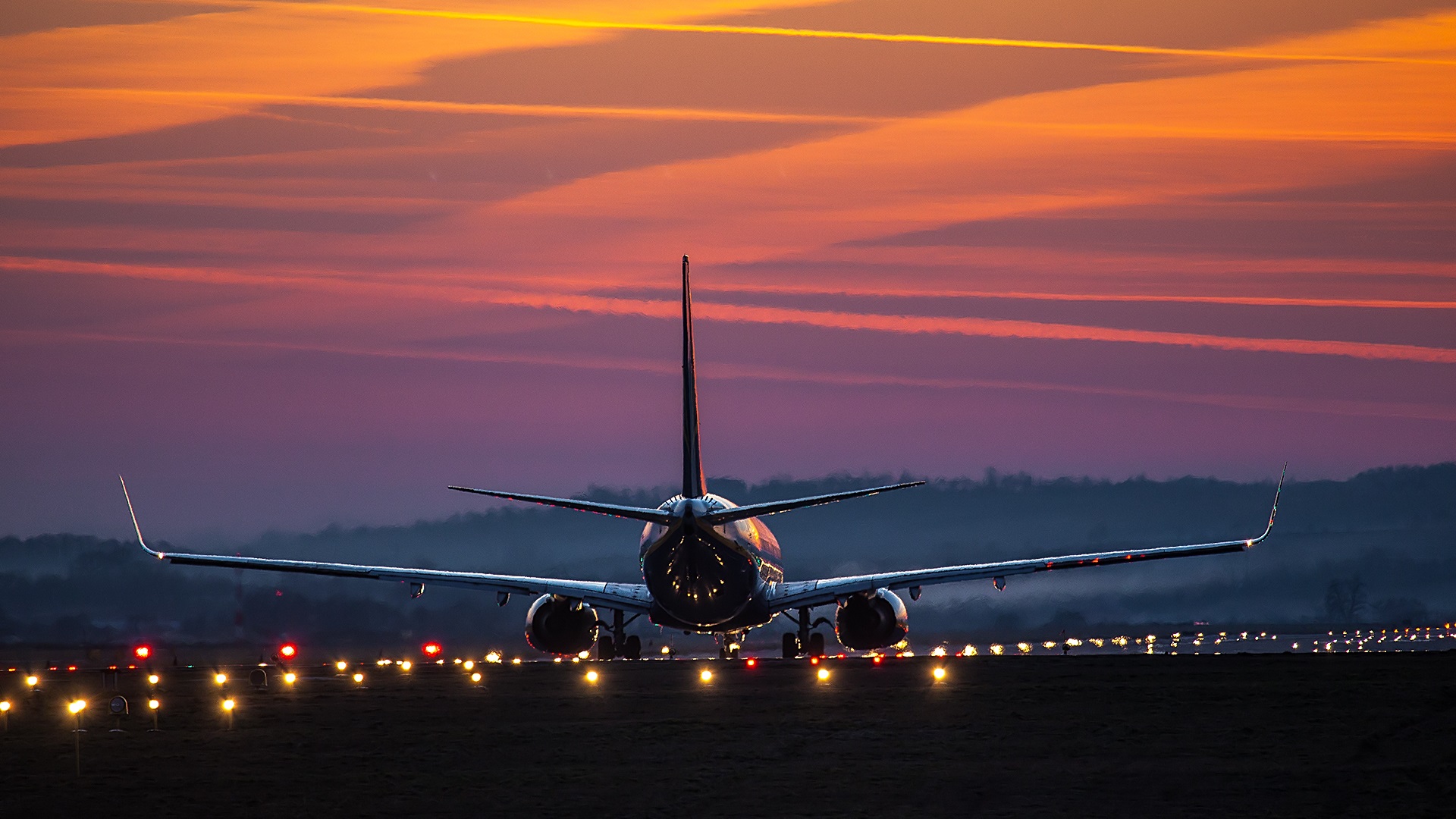The world of global travel is awakening, with many countries starting to reopen for international travel amidst Covid-19. Each country and region has its unique rules including the European Community and the United States of America. Many countries are also requiring a negative Covid-19 test result from travelers.
The UAE was one of the the first countries requiring a Covid-19 negative certificate from all inbound and transit passengers.
Visitors to Greece arriving by air from Bulgaria and Romania will need to provide a negative test result for coronavirus in order to gain entry. The requirement will not apply to Greek nationals arriving from those countries.
China-bound flights will now have to provide proof of a negative coronavirus test result before being allowed to board the plane. Foreign travelers to China will be required to apply for a health certificate from the Chinese embassy in their country of origin and Chinese passengers must present a QR code proving their eligibility to board the flight, CNN reported.
All passengers coming to Seychelles from August 1 when the airport opens for scheduled passenger flights must have proof of a negative COVID-19 PCR test not more than 72 hours old before boarding their flight to the island nation.
All passengers, including those in transit through Rwanda, will be required to show proof of a negative Covid-19 test from a certified laboratory, taken within 72 hours of arriving in Rwanda.
Czech Republic publishes a list of countries that are allowed to enter the country due to their low risk of COVID-19. The list includes EU member states as well as Australia, UK, and Thailand.
Effective July 15, passengers traveling to the U.S. Virgin Islands originating from areas designated as high risk are required to take a COVID PCR test within 5 days of departure and present negative test results upon arrival, or be subject to a 14 day self-quarantine when they arrive in the territory.
Passengers traveling to Mexico are required to present a completed Questionnaire for Identification of Risk Factors in Travelers to immigration upon arrival. Travelers may be subject to health screening, including temperature checks, upon arrival.
Turkey announced that there is no requirement to have a negative COVID-19 PCR test. The country that is getting ready to welcome Russian tourists from beginning of August, will only check temperature of travelers arriving the country. Turkish Airlines said, “If our passengers show symptoms such as fever, runny nose, cough and respiratory distress above 38°C, they will not be admitted to our flights and will be directed to the relevant health institution,”. All passengers aboard Turkish Airlines are required to wear masks at the airport and during the flights.
As of July 18, customers traveling to French territories from certain countries must show a negative PCR (COVID-19) test. These territories include: Cayenne (CAY), Pointe a Pitre (PTP), Fort de France (FDF), St. Denis (RUN), St. Maarten (SXM), Tahiti (PPT) or Noumea (NOU) must have a mandatory PCR test. The requirement does not apply to continental France. The test must be completed less than 72 hours before departure. If a test cannot be shown upon arrival, customers risk an imposed quarantine for 14 days. Additional information is available on the PCR test requirements.
Passengers traveling to Germany are required to quarantine for 14 days and can source additional information from Germany’s Travel Restrictions FAQs.
Passengers traveling to the United Kingdom must complete the online contact detail form 48 hours prior to departure. Travelers are subject to a mandatory 14-day quarantine upon arrival (exemptions for those traveling for elite sports or the film and television industry). Travelers will be subject to health screening, including temperature testing, upon departure.
All passengers traveling to Israel (1) are subject to a 14-day mandatory quarantine and (2) must complete a Quarantine Declaration Form.
Passengers travelling to Australia are required to undergo 14-day quarantine at a government-designated facility upon arrival (limited exceptions apply); quarantine will be completed at a nearby hotel at passengers’ expense. Flights within Australia are not permitted until the mandatory quarantine has been completed. Passengers may be subject to a health screening upon arrival. Passengers travelling to Australia who are not Australian citizens or permanent residents must complete the exemption request form to obtain permission to enter Australia.
For any international flight departing Australia, all Australian citizens, including dual nationals, and all permanent residents must obtain permission to depart Australia. Sydney Airport has stopped bus service between international and domestic terminals, passengers connecting from domestic to international flights will need to take the Airport Link train, 400/420 bus, or taxi/ride-share between terminals. Passengers must complete the mandatory 14-day quarantine upon arrival from international locations and cannot connect from international to domestic flights at this time.
Passengers traveling from the United States, Canada, and most other international origins are subject to 14-day quarantine upon arrival to Japan. Details for entry restriction can be found from the Japan Ministry of Foreign Affairs, exceptions to entry restrictions can be found from the Japan Ministry of Justice.
Passengers traveling to or through South Korea are required to download and install a COVID-19 self-diagnosis mobile app and complete the requested information prior to travel. If traveling from the US, passengers are subject to a mandatory 14-day quarantine. A temperature check and documentation are required prior to boarding. All long-term visitors, including those who are asymptomatic, will be directed to undergo testing within three days of their arrival while also carrying out a mandatory 14-day self-quarantine period. These individuals will receive notification regarding when and where to be tested. For more information, visit the South Korea Ministry of Health and Welfare.
All passengers traveling to Antigua and Barbuda are required to complete the Electronic Passenger Registration Form and Health Screening Form prior to departure. Starting July 5, passengers must complete a COVID RT-PCR test within 7 days prior to departure for and provide negative test results upon arrival. This includes transiting passengers.
Effective July 10, all passengers traveling to Aruba are required to complete online the mandatory Health Assessment, within 72 hours prior to departure to Aruba. Based on the answers to the questions, a passenger will receive an email (typically within 15 minutes) stating either that he/she has qualified to travel. Travelers approved for travel will receive an ED card and must present the approval card during check-in and/or boarding. Travelers may either provide a negative COVID PCR test result taken within 72 hours of departure (uploaded as part of the Health Assessment) or must undergo COVID testing at the airport upon arrival (with a one day mandatory quarantine at the traveler’s expense while awaiting results). Test results must be uploaded within the Health Assessment at least 12 hours and at most 72 hours prior to departure. Travelers will not be able to upload test results after the 12 hour pre-flight departure deadline. Travelers arriving from the following US states must obtain a COVID PCR test and upload negative test results in the Health Assessment at least 12 hours before departure (they are not allowed to take the test on arrival.)
All passengers traveling to the Bahamas are required to complete a 14-day mandatory quarantine in a Government facility at their own expense. At the end of the 14-day quarantine, visitors are required to undergo a RT-PCR COVID 19 molecular diagnostic test, at their own expense. Visitors of the Bahamas are required to apply for a Bahamas Health Visa and provide a negative COVID RT-PCR test result issued less than 10 days prior to arrival. Passengers must present the approved Bahamas Health Visa and negative COVID test result at check-in and upon arrival. Passengers who are 10 years old and younger are not required to take a test. Health Visa applications can take up to 72 hours so please allow adequate lead time. Travelers will be subject to health screening, including COVID testing, upon arrival.
Effective July 1, all passengers traveling to Dominican Republic will be subject to health screening, including temperature checks and may include COVID PCR test, upon arrival. Additional health declarations and customs forms may be required and will be made available prior to departure.
Passengers traveling to Jamaica are required to complete and submit a travel declaration form for Jamaica within 72 hours of departure to confirm permission to travel to Jamaica and must provide the travel approval before boarding. Effective July 15, for visitors traveling to Jamaica from areas designated as high risk, passengers are required to take a COVID PCR test within 10 days of departure.
To protect Canada from the outbreak of COVID-19, until further notice, most foreign nationals cannot travel to Canada, even if they have a valid visitor visa or electronic travel authorization (eTA).
And in the United States, all passengers may be subject to health screening and temperature checks upon entry and all nonresident travelers to Alaska will be required to have a negative test for the coronavirus before they arrive in the state. Connecticut
Customers traveling to the District of Columbia from a high-risk state who are traveling for non-essential activities will be required to self-quarantine, opens in a new window for 14 days.
Passengers traveling to Florida from Connecticut, New York or New Jersey are subject to a mandatory 14-day quarantine in a home or hotel room.
Passengers traveling to Hawaii are subject to a mandatory 14-day quarantine in a home or hotel room. Effective September 1, travelers to Hawaii who have a valid negative COVID-19, test 72 hours prior to boarding their flight to Hawaii will not be subject to the 14-day quarantine.
Traveling to the City of Chicago from Alabama, Arkansas, Arizona, California, Florida, Georgia, Idaho, Iowa, Kansas, Louisiana, Mississippi, Missouri, Nebraska, Nevada, North Carolina, North Dakota, Oklahoma, South Carolina, Tennessee, Texas, Utah, and Wisconsin are subject to a mandatory 14-day quarantine, opens in a new window in a home or hotel room.
Passengers traveling to Kansas from Arizona or Florida are subject to a mandatory 14-day quarantine, opens in a new window in a home or hotel room.
Travelers entering Maine are subject to a mandatory 14-day quarantine. Residents traveling from Connecticut, New York, New Jersey, New Hampshire, and Vermont are exempt from quarantine and COVID testing. All other travelers to Maine may elect to take a COVID PCR test less than 72 hours prior to departure and provide negative test results, in lieu of a 14-day quarantine.
Passengers traveling to New Jersey from Alabama, Alaska, Arkansas, Arizona, California, Delaware, the District of Columbia, Florida, Georgia, Idaho, Illinois, Indiana, Iowa, Kansas, Kentucky, Louisiana, Maryland, Minnesota, Mississippi, Missouri, Montana, Nebraska, Nevada, New Mexico, North Carolina, North Dakota, Ohio, Oklahoma, Puerto Rico, South Carolina, Tennessee, Texas, Utah, Virginia, Washington, and Wisconsin are subject to a mandatory 14-day quarantine in a home or hotel room.
Passengers traveling to New Mexico for leisure are subject to a mandatory 14-day quarantine.
Passengers traveling to New York from Alabama, Alaska, Arkansas, Arizona, California, Delaware, the District of Columbia, Florida, Georgia, Idaho, Illinois, Indiana, Iowa, Kansas, Kentucky, Louisiana, Maryland, Minnesota, Mississippi, Missouri, Montana, Nebraska, Nevada, New Mexico, North Carolina, North Dakota, Ohio, Oklahoma, Puerto Rico, South Carolina, Tennessee, Texas, Utah, Virginia, Washington, and Wisconsin are subject to a mandatory 14-day quarantine in a home or hotel room.
Travelers arriving to Ohio from Alabama, Arizona, Florida, Georgia, Idaho, Mississippi, Nevada, South Carolina, and Texas are recommended to self-quarantine, opens in a new window for 14 days in a home or hotel room. The recommendation applies to both visitors and Ohioans returning from these states.
Passengers traveling to Vermont are subject to a 14-day quarantine, or a or a 7-day quarantine followed by a negative test when you arrive in a Vermont at either a lodging establishment or with friends or family.
For the latest information, check out the travel restrictions and rules from each country.
Written with research from www.ftnnews.com/.








